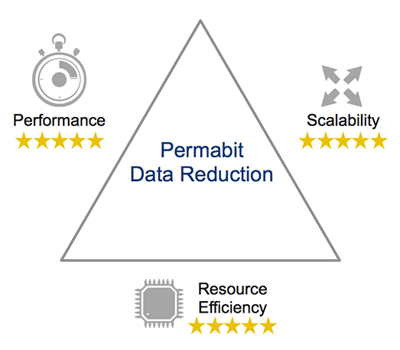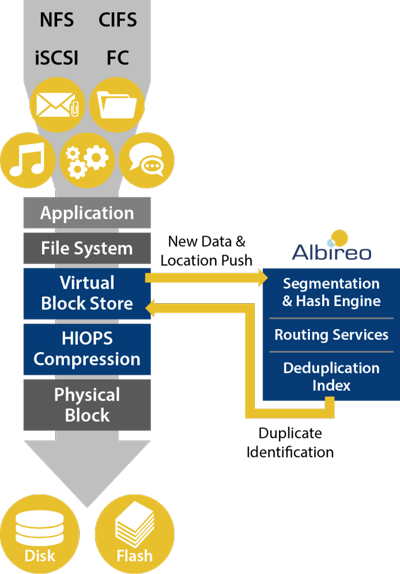Permabit Using Data Reduction at OS layer in Enterprise Linux Environments
VDO, with inline data deduplication, HIO/s compression, and fine-grained thin provisioning, is deployed as device-mapper driver for Linux.
This is a Press Release edited by StorageNewsletter.com on March 23, 2017 at 2:38 pmEnterprises and cloud service providers that have built their infrastructure around Linux should deploy data reduction in the OS to drive costs down, say experts at Permabit Technology Corporation, the company behind Virtual Data Optimizer (VDO).

VDO is a complete data reduction software for Linux, the server OS. VDO software fills a gap in the Linux feature set by providing a cost effective, alternative to the data reduction services delivered as part of the two other major OS platforms – Windows and VMware. IT architects are driven to cut costs as they build out their next generation infrastructure with one or more of these OS platforms in public and/or private cloud deployments and one obvious way to do so is with data reduction.
When employed as a component of the OS, data reduction can be applied universally without lock-in of proprietary solutions. Adding compression, deduplication, and thin provisioning to the core OS, data reduction benefits can be leveraged by any application or infrastructure services running on that OS. This ensures that savings accrue across the entire IT infrastructure, delivering TCO advantages no matter where the data resides. This is the future of data reduction – as a ubiquitous service of the OS.
“We’re seeing movement away from proprietary storage solutions, where data reduction was a key differentiated feature, toward OS-based capabilities that are applied across an entire infrastructure,” said Tom Cook, CEO, Permabit. “Early adopters are reaping financial rewards through reduced cost of equipment, space, power and cooling. Today we are also seeing adoption of data reduction in the OS by more conservative IT organizations who are driven to take on more initiatives with tightly constrained IT budgets.“

VDO, with inline data deduplication, HIO/s compression, and fine-grained thin provisioning, is deployed as a device-mapper driver for Linux. This approach ensures compatibility with a full complement of direct-attached/ephemeral, block, file and object interfaces. VDO data reduction is available for Red Hat, Inc.‘ Enterprise Linux and Canonical Ltd.‘s Ubuntu Linux LTS. distributions.
Advantages of in-OS data reduction technology include:
-
Improved density for public/private/hybrid cloud storage, resulting in lower storage and service costs
-
Vendor independent to function across hardware running the target OS
-
Data mobility between on-premise and cloud resources
-
Up to six times lower IT infrastructure OpEx
-
Transparent to end users accessing data
-
Requires no modifications to existing applications, file systems, virtualization features, or data protection capabilities
With VDO, these advantages are being realized on Linux today. VDO deployments have been completed (or are currently in progress) with large telecommunications companies, government agencies, financial services firms and IaaS providers who have standardized on Linux for their data centers. With data reduction in Linux, enterprises achieve vendor independence across all Linux based storage, increased mobility of reduced data and hyper scale economics.












 Subscribe to our free daily newsletter
Subscribe to our free daily newsletter
